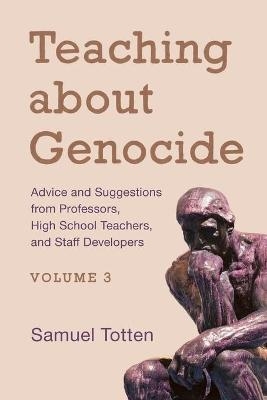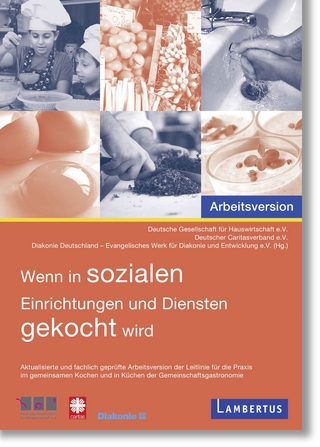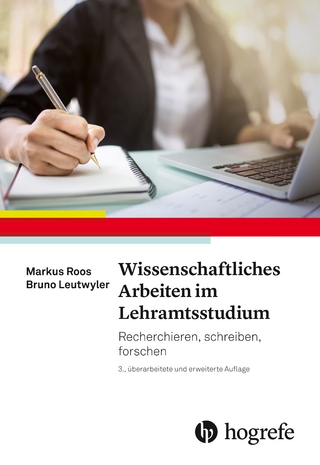
Teaching about Genocide
Rowman & Littlefield (Verlag)
978-1-4758-5600-2 (ISBN)
Teaching about Genocide presents the insights, advice, and suggestions of secondary-level teachers (social studies, history, English, language arts), and professors (political scientists, historians, psychologists), in relation to teaching about various facets of genocide. The contributions are extremely eclectic [this sounds negative rather than positive], ranging from basic concerns when teaching about genocide to a discussion about why it is critical to teach students about more general human rights violations during a course on genocide, and from a focus on specific cases of genocide to a range of pedagogical strategies for teaching about genocide.
Samuel Totten, a longtime scholar of genocide studies and retired professor (University of Arkansas, Fayetteville), is the author of Teaching About Crimes Against Humanity and Genocide: Fundamental Issues and Approaches (Information Age Publishing, 2018). Over the past fourteen years he has conducted field work into crimes against humanity and genocide in the refugee camps along the Chad/Darfur, Sudan border, and in the Nuba Mountains of Sudan.
Part 1: High School Teachers and Staff Developers
Chapter 1: “Providing Students with the Opportunity to Engage with Survivors of Genocide” by Michael Anthony
Chapter 2: "A Global Collaborative Approach to Genocide Education” by Kate Weckesser English
Chapter 3: “The Bosnian Genocide: Teaching Ideas and Resources” by Lisa M. Adeli
Chapter 4: “Happening Now: The Rohingya Genocide in Myanmar, A Jigsaw Activity Using Mace’s 10 Stages of Genocide” by Frank J. Pérez
Part 2: Professors
Chapter 5: “If ‘Never Again!’ Is a Key Theme of Genocide Studies, Perhaps the Typical Approach to Genocide Education Needs to Be Reconsidered” by Samuel Totten
Chapter 6: “Teaching ‘Introduction to Genocide Studies’” by Ashley L. Greene.
Chapter 7: “Rewriting the Genocide Convention” by Tracy H. Slagter
Chapter 8: “Our Nature in Genocide: Teaching Atrocity from Within the Human Continuum” by Timothy Horner
Chapter 9: “Extraordinary Atrocities, Ordinary People: Teaching Genocide through the Lenses of Banal and Fetishized Evils” by Cathryn van Kessel
Chapter 10: “Moving Beyond Perpetrators, Victims, Bystanders, and Upstanders” by Hollie Nyseth Brehm and Michelle L. O’Brien
Chapter 11: “Teaching About Perpetrators and Perpetration in Genocide” by Timothy Williams
Chapter 12 :“Understanding Perpetrators?” by Susanne C. Knittel
Chapter 13: “Confronting Mass Atrocities: Interplays Between Legal Norms, Political Interests, and Moral Imperatives for Action” by Eyal Mayroz
Chapter 14 :“Teaching About Resistance to Genocide” by Khatchig Mouradian
Chapter 15 :"Balkan Stereotypes and the Problem of Teaching Southeastern European Genocide” by James Frusetta
Chapter 16: “From Student to Citizen: The Impact of Personal Narratives in University-Level Genocide Education” by Ari Kohen and Gerald J. Steinacher
Chapter 17: “Does Place Matter? Using Inquiry to Explore the Geography of Genocide” by Aaron Johnson and Lisa Pennington
Chapter 18: “The Complexity of Genocide: Atrocity Prevention and Interactive Learning” by Benjamin Meiches
Chapter 19: “Teaching Economic Aspects of Genocide and Their Prevention” by Charles H. Anderton
Chapter 20: “In the Margins: Teaching About Genocide While Teaching Writing” by Taleen Mardirossian
Chapter 21: “Advice on Teaching About Genocide with Film” by Glenn Mitoma and Alan S. Marcus
Chapter 22: “Art and Genocide in University Classrooms” by Mark Celinscak
Chapter 23: “Genocide Site Visits as an Educational Tool: A Bosnian Experience” by Hikmet Karčić.
Chapter 24: “Developing an ‘Heroic Imagination’ through Study Abroad in Guatemala by Trisha Posey and Kevin Simpson
Chapter 25: “The Potential and Limitations of Student Fieldwork on Continents and in Nations Other Than Their Own” by Timothy Williams
Chapter 26: “Genocide and the Promise of Positive Peace” by James G. Brown
| Erscheinungsdatum | 10.05.2021 |
|---|---|
| Verlagsort | Lanham, MD |
| Sprache | englisch |
| Maße | 154 x 221 mm |
| Gewicht | 463 g |
| Themenwelt | Sozialwissenschaften ► Pädagogik ► Allgemeines / Lexika |
| Sozialwissenschaften ► Pädagogik ► Erwachsenenbildung | |
| ISBN-10 | 1-4758-5600-8 / 1475856008 |
| ISBN-13 | 978-1-4758-5600-2 / 9781475856002 |
| Zustand | Neuware |
| Haben Sie eine Frage zum Produkt? |
aus dem Bereich


